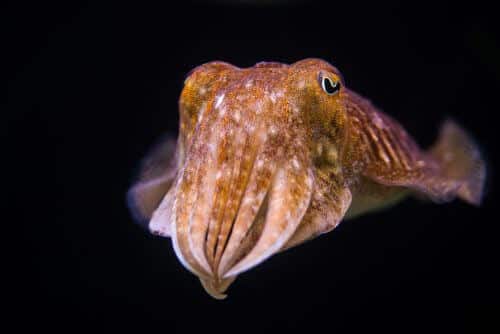It turns out that octopuses and squids know how to change the instructions for producing proteins and edit themselves genetically. The discovery may provide new insights in the field of genetic engineering

And what if we could edit human genetics without interfering with DNA? Octopuses and squids are mysterious, intriguing animals with extraordinary behavioral sophistication. It turns out that in addition to eight arms, three hearts and an impressive neural network, these creatures are also blessed with fascinating genetic intelligence.
A new study published recently shows that octopuses and squids, which belong to the subfamily known as cuttlefish(Coleoidea) , develop differently from any other creature, including humans, and change the genetic instructions for the production of their proteins in a unique way. In other words - they can edit themselves genetically.
The research was conducted by Professor Eli Isenberg from the Raymond and Beverly Sackler School of Physics and Astronomy at Tel Aviv University, in collaboration with Joshua Rosenthal from the Institute of Marine Biology of the University of Chicago, in Woods Hall, Massachusetts, USA.
Unique replication process, slow evolution
In most creatures in nature, the protein sequence is determined unequivocally based on the genetic information encoded in DNA, and it determines the structure and function of the protein. The cells in our body are composed of proteins, which are created according to the instructions written in DNA. DNA is a huge molecule made up of a chain of small units. The specific arrangement of these units, known as the DNA sequence, is the code that determines the structure of the protein. The gene is the 'document' of the instructions for building the protein, when each DNA molecule (chromosome) has hundreds to thousands of genes. In the cell, a process of transcription of the DNA into similar molecules known as RNA is carried out, and they are eventually translated into protein.
Octopuses and squids have an extraordinary ability to carry out genetic editing by changing the RNA molecule so that there is no exact transcription of the genomic sequence. This way they can produce a huge variety of different versions of the protein from the same 'source document' stored in DNA.
"In order to preserve this special mechanism of genetic editing, the rate of changes in the squid's genome slows down significantly, and this means a slowdown in the adaptation process of the creature to its environment," explains Prof. Isenberg. "The squid are willing to pay this heavy price, in exchange for the benefit obtained from the flexibility in producing diverse proteins through the RNA editing mechanism."
On the way to "RNA engineering"
This discovery is causing echoes around the world and was covered in several scientific journals, and even in the New York Times. The observation of how octopuses and squids "edit" the RNA may provide scientists with an important technological tool in the field of genetic engineering. DNA manipulations may be complex and dangerous, and lead to unwanted side effects. On the other hand, the RNA editing mechanism provides researchers with another, less dangerous way to influence the proteins in the human body in the form of "RNA engineering". It is possible that in the future this will help to influence the genomic information in the human body in a controlled manner, and to develop drugs for genetic diseases.

One response
very interesting.
How do they know the desired DNA?
If I go into the details, then it seems that the DNA contains all the options in which section is inactive and they extract the desired code from there as needed?